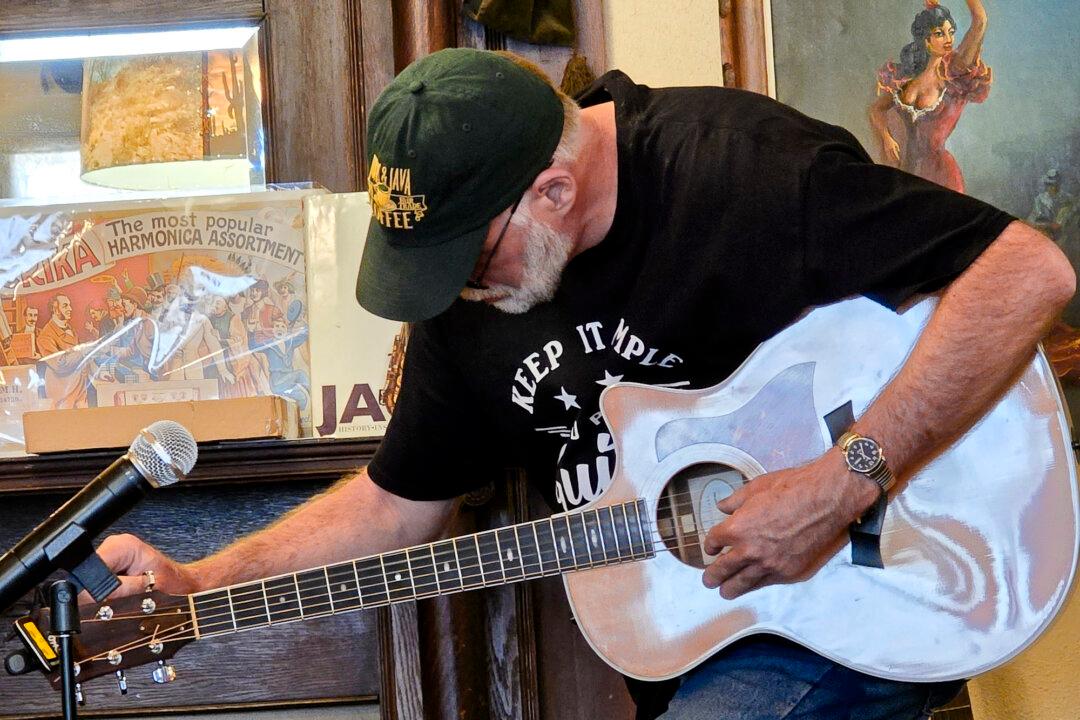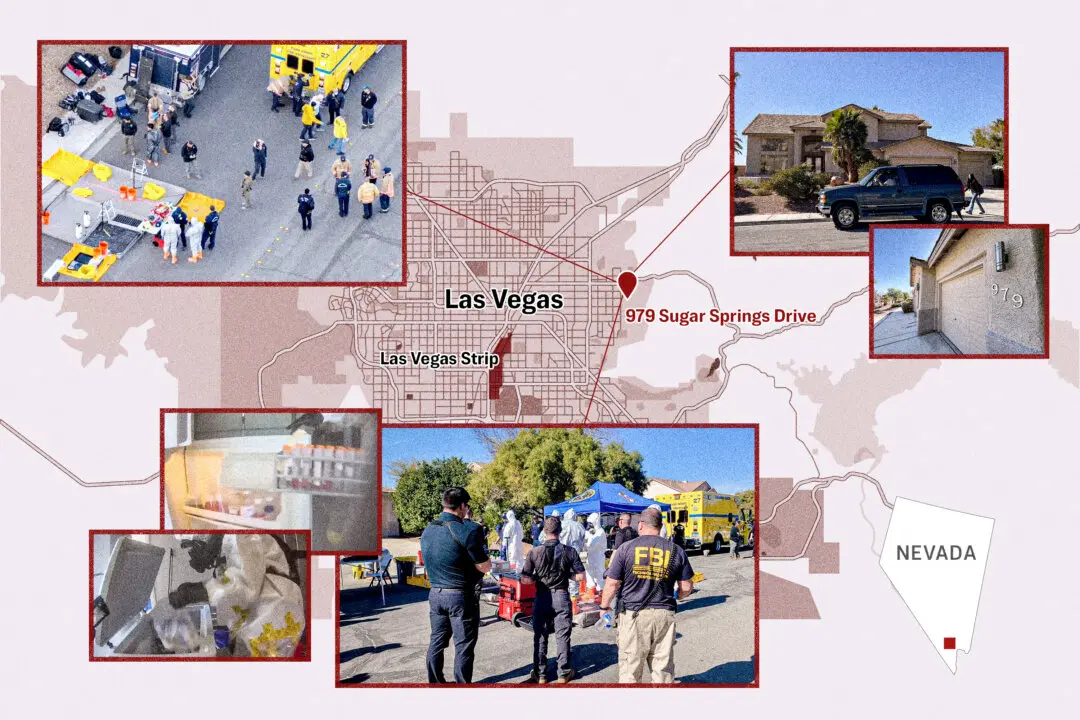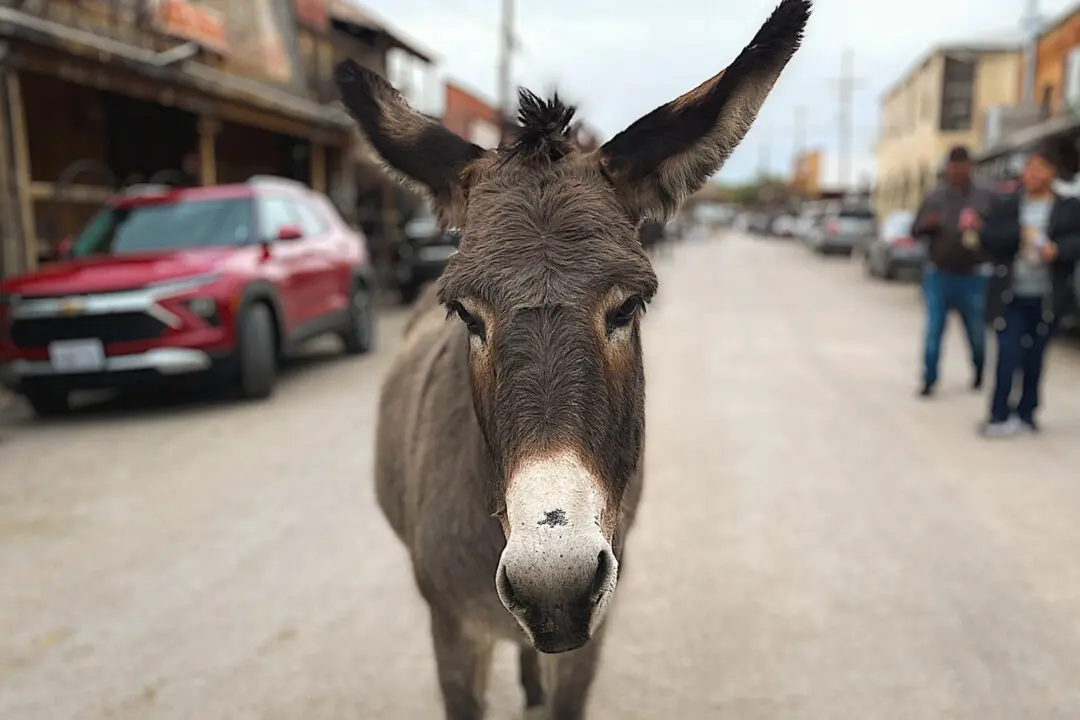SPRINGERVILLE, Ariz.—Wayne, 56, was the first to arrive with his electric acoustic guitar tucked under his arm. Soon, the musicians would all be gathered around the big table, jamming away like they do every Wednesday afternoon.
“This place is like a haven for me—my church. My second home,” Wayne said as he described Junk & Java, a coffee and antiques shop in the foothills of the White Mountains in Springerville, Arizona.





